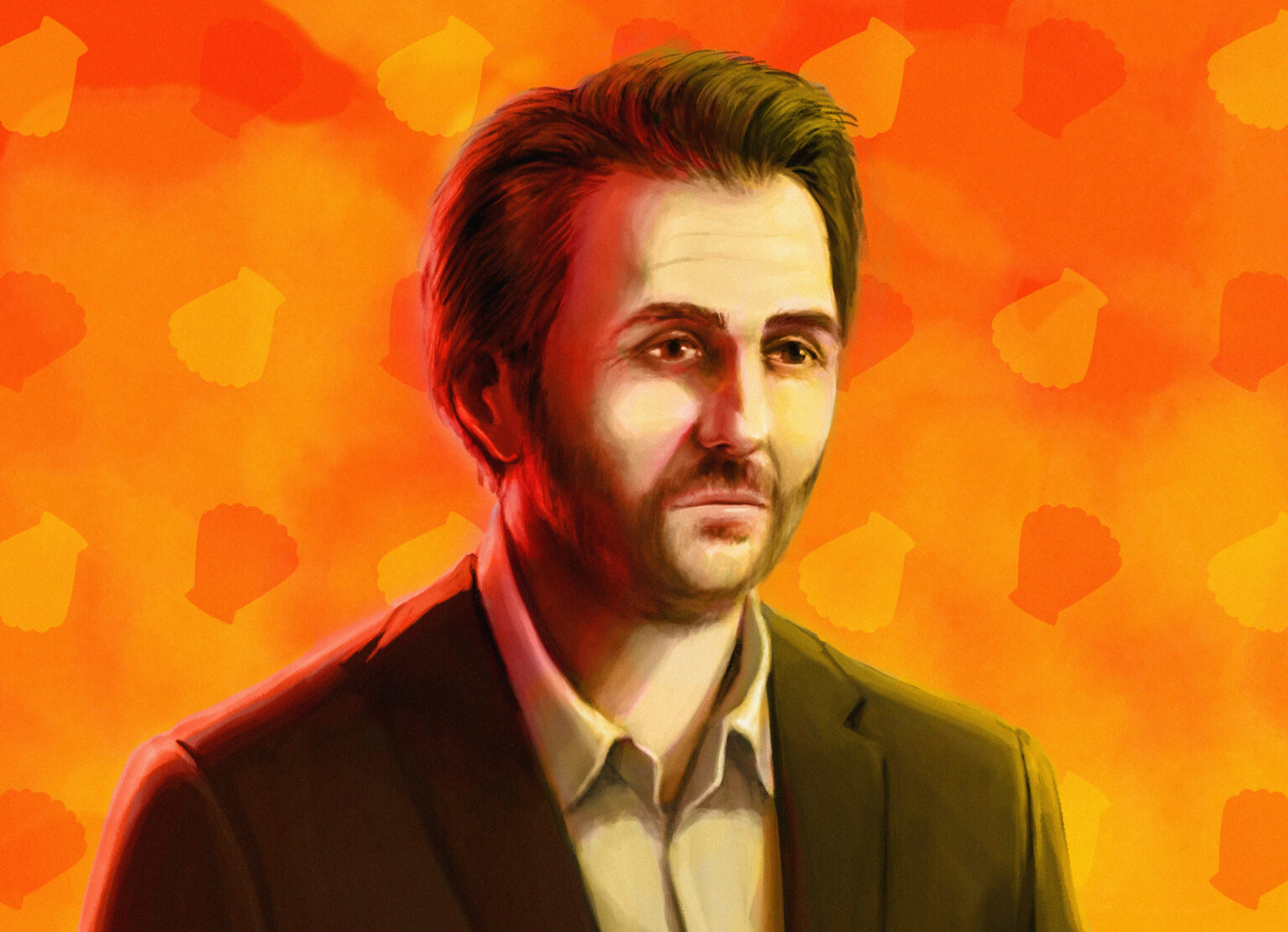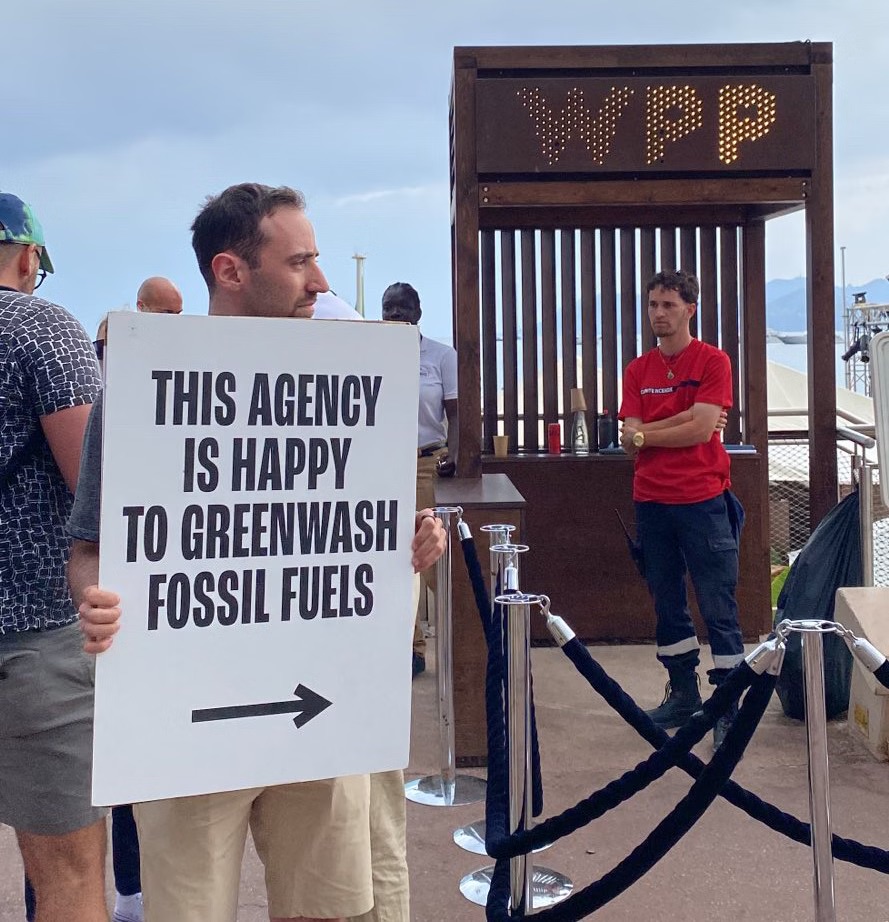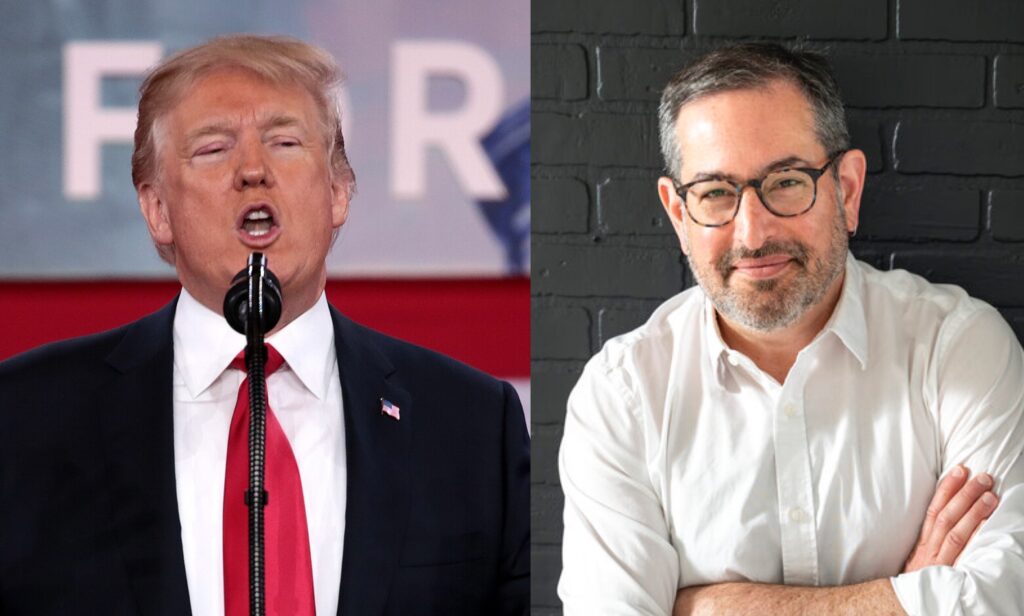In a June 2023 video interview, Yannick Bolloré looks relaxed. The rolled-back cuffs of his rumpled blue button-down reveal an array of mismatched wristbands. His collar is open just enough to glimpse a gold pendant gleaming in the early summer sunshine.
Bolloré, the chair and CEO of the Havas Group, is on the French Riviera to attend the annual Cannes Lions festival, “a week of world-class networking, learning, and history-making creativity” that draws thousands of PR and marketing professionals from around the world.
Interviewer Thomas Kolster, the author of the book “Goodvertising: Creative advertising that cares”, opens with a softball: “Yannick, advertising and climate can seem like quite an oxymoron. So why do you care about the climate?”
Bolloré answers: “I care about the climate for obvious reasons, because this is the planet where we’re living. I especially care because I believe that when you’re the CEO of a communication group as big as Havas — with 22,000 colleagues, we operate in more than 100 countries, we have clients in every sector — as a communication head I have the power, and we have collectively the power, to influence people, behaviours”.
“So I believe this power is giving us a real responsibility.”
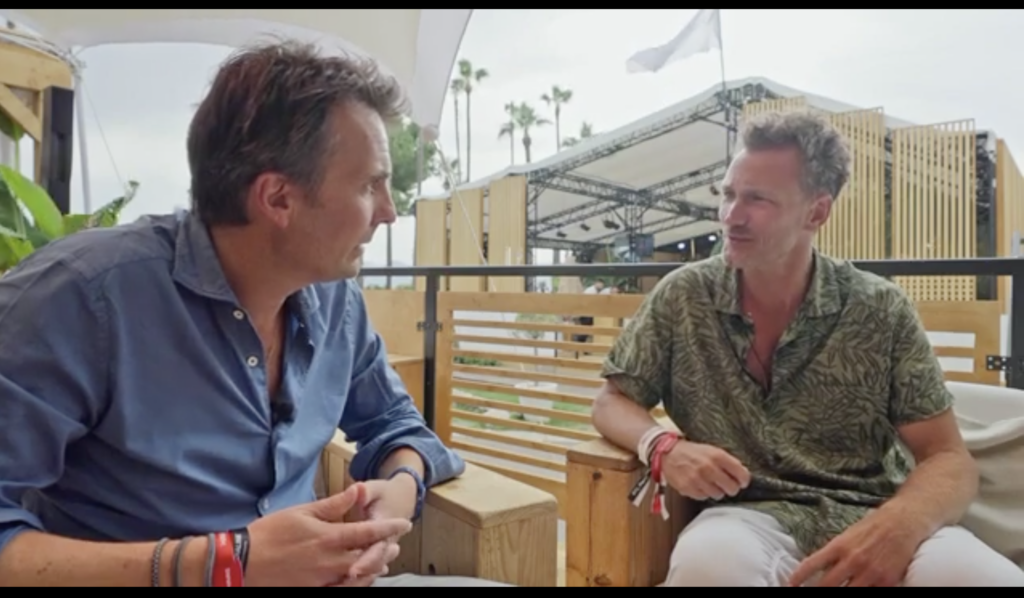
With gestures like these, the 43-year-old Bolloré — the youthful face of his family’s global business empire, the Bolloré Group, which controls both Havas and its parent company Vivendi — has cultivated a reputation as the PR mogul breaking with the ad industry’s long history of greenwashing fossil fuel companies.
So it was a surprise to many PR sector observers when news broke in September that Shell, the world’s fifth largest oil company, had selected Havas — a global PR, media and communications conglomerate with 2022 revenues of 2.3 billion euros (around $2.49 billion) — to take over the company’s global strategic media buying in 2024. Shell spent around 220 million euros ($240 million) on this type of advertising in 2022, according to AdWeek.
However, while the Shell deal may be the biggest Havas has ever had with an oil and gas client, it is by no means the first. Nor is it the only link between the fossil fuel industry and the Bolloré family’s global business interests, which encompass multi-billion-dollar logistics operations servicing major oil companies, including Shell.
Wave of Anger
Backlash to the deal has put Yannick Bolloré in a position he may be finding unusual: the defensive.
When Shell’s selection of Havas came to light in mid-September, the campaign group Fossil Fuel Non-Proliferation Treaty Initiative immediately and loudly cancelled its communications contract with Havas Red, a U.S. subsidiary headquartered in New York City.
The deal also threw into question the Havas group’s four B Corp certifications — a credential awarded to companies that demonstrate the highest social, environmental, and corporate governance standards. In October, a group of 22 other B Corp-certified PR agencies called for stripping Havas London, Havas Lemz in Amsterdam, Havas New York, and Havas Immerse in Malaysia of their B Corp status.
A spokesperson for B Lab Global, the group that oversees these certifications, confirmed to DeSmog that it is launching a formal investigation of whether Havas’s Shell contract has led to “breaches of the B Corp Community values”, including “whether the addition of new clients in controversial industries impacts Havas’s compliance with limits on such clients”.
According to a company insider, who asked not to be named because they were not authorised to talk to the press, Havas UK leaders had “relatively little say” about pursuing the Shell deal.
“There was clearly a discussion internally about pitching for that business, particularly given Havas’ reputation in that space,” the insider said, but “it was a decision that was taken at the global level”, referring to Havas corporate headquarters in Paris, where Yannick Bolloré is based. “That is where the decision was made and once that happened, there was very little room for local manoeuvre.”
According to a second company insider, those who questioned the deal included Patrick Affleck, CEO of Havas Media Group UK & Ireland, Havas London CEO Xavier Rees, and Mark Whelan, chairman and chief creative officer of Havas UK. (Rees has since left Havas to become chief executive of the ad agency AMV BBDO, the trade publication Campaign reported in early January).
They “felt it was contradictory to everything they’re working towards, contradictory to values, contradictory to B Corp, to the positioning of the company,” said this insider, who requested not to be named for fear of professional repercussions.
“There was a lot of anger” among UK staff when the news broke, this second insider added. The unhappiness only increased after Extinction Rebellion and Indigenous activists with the Movement for Survival of the Ogoni People staged a die-in inside Havas London’s reception area, triggering an evacuation of the building.
The staff were “upset that their company was doing something that controversial,” said this insider. “People were questioning, ‘Do I want to work in this place?'”
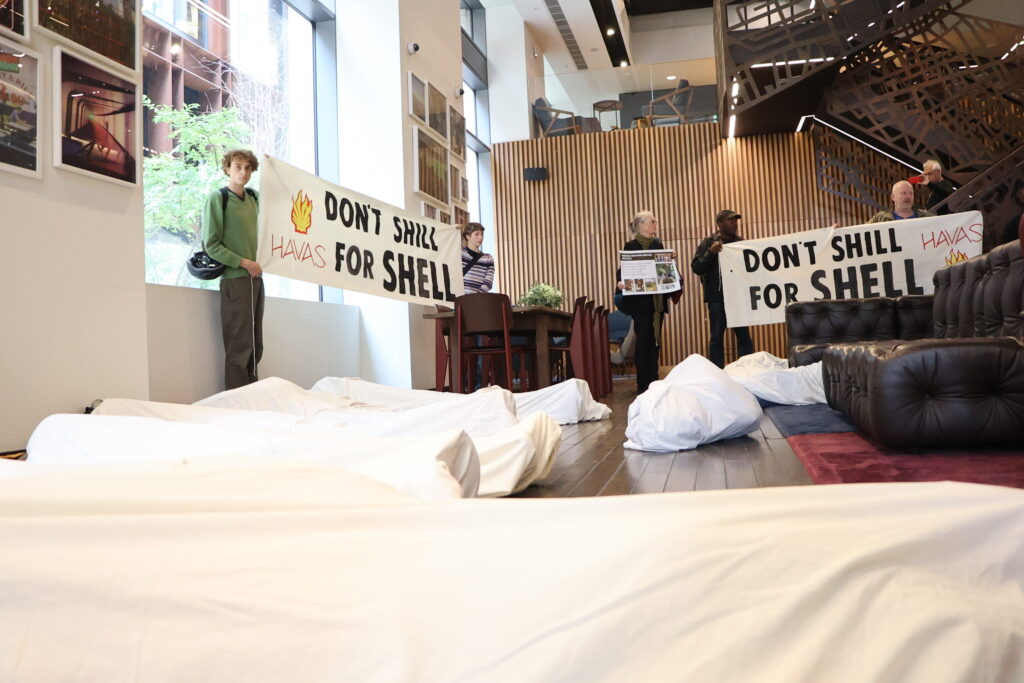
A few weeks later, the second insider told DeSmog, Yannick Bolloré met via video with UK staff, in an event room so packed “they had to put people into overflow rooms”.
Havas employees had been told this meeting would be “a Q&A session, where [Bolloré] was going to talk about the Shell business, and the controversy, and the protesters.”
Instead, Bolloré delivered “a monologue” as if “he was reading off an autocue”, justifying the deal in part by stating that working with Shell would be an opportunity for Havas to change the oil and gas company from the inside.
“Ordinarily, at that point,” the second insider said, “you’d expect some sort of quiet applause. He was met with absolute stunned silence. It was powerful. An absolute wall of silence.”
Just days later, Campaign reported that “Yannick Bolloré has said Havas was happy to pitch for and win Shell’s global media account, despite controversy about working with fossil-fuel clients because ‘we believe the most effective change comes from within'”.
“‘We have to say we won’t participate in any greenwashing whatsoever and we will accompany them and help achieve their transition,” Bolloré told Campaign. “Maybe in choosing Havas, [it shows] they are serious in their transition journey”.
The interview prompted Rob Mayhew, an ad agency creative director known for mocking his own industry on TikTok and LinkedIn, to share a video parody of Bolloré’s comments with his 152,000 followers.
@mrrobertmayhew A clear misson #Relatable #agencylife #officelife
♬ W.A.Mozart, Rondo alla Turca from Piano Sonata No. 11 in A major – AllMusicGallery
Bolloré repeated these talking points at a “Future of Media” conference in London in mid-October. “The most effective change comes from within,” he said, according to The Media Leader. “Our industry should be able to work with any industry as long as, and this is important, they are themselves on a meaningful transition journey.”
Solitaire Townsend, the co-founder of the sustainability communications agency Futerra, told DeSmog that advertising and PR agencies are in no position to affect a client’s business model, having “nowhere near the competency, education, or knowledge” to transform any company’s climate impact from within. “I would have much more respect for any ad agency who took this work and said we’re doing it for the money. That would be a much less greenwashed position to have”.
In response to a detailed list of questions, Havas referred DeSmog back to comments made when news of the deal broke last year.
“We are pleased to have been appointed Shell’s global strategic media buying agency,” Charlotte Rambaud, global chief communications officer for Havas, said in a statement in September 2023, “and look forward to working with the Shell team to ensure consumers are better informed about the range of energy solutions it is providing today and investing in for the future.”
Fossil Connections
Shell’s global strategic media contract is not the first time an oil company has hired Havas, although it appears to be the biggest.
Havas Milan has created advertisements and digital content, including TikTok dances, for the oil company Kuwait Petroleum, also known as Q8. According to the advocacy group Clean Creatives, which publishes a yearly “F-list” of ad and PR agencies that work with the fossil fuel industry, other Havas Group companies have worked with Exxon Mobil, BP, Total Energies, and Phoenix Petroleum Philippines.
Further, these are far from being the Bolloré Group’s only connections to the fossil fuel sector. The conglomerate’s energy, transportation, and logistics divisions have had lucrative business connections with the global industry for decades, including with Shell.
Headquartered in the outskirts of Paris, the Bolloré Group — under the name of its holding company, Compagnie de l’Odet — sits at 177 on the Fortune 500 Europe list of largest companies for 2023, with 19.77 billion euros ($21.7 billon) in revenues.
Each entity’s board of directors is dominated by the Bolloré family. The Bolloré Group’s top board seats have been held for the past several years by vice-chair Yannick and brother Cyrille, the chair and CEO. Their siblings Marie and Sébastien are among three other Bolloré family members on the board.
Conservative billionaire and family patriarch Vincent Bolloré, who led the Bolloré Group for decades, remains president and CEO of Compagnie de l’Odet, where Yannick, Marie, and Cyrille also sit on the board.
In 1986, according to company materials, the Bolloré Group acquired the Commercial Chartering and Fuel Company (or SCAC, for Société Commerciale d’Affrètement et de Combustible) from the Suez Oil Company — its first step into freight transportation and oil logistics in both France and Africa. A few years later, SCAC merged with another fuel transport acquisition called Rhin-Rhône to form Bolloré Energy — the first independent petroleum distributor in France.
During the early 2000s, Bolloré Energy acquired stakes in a number of other French oil logistics businesses owned by Shell and BP.
Today, Bolloré Energy describes itself as “a key player” in oil distribution and logistics across France, Switzerland, and Germany. The company brought in nearly 3.6 billion euros (around $3.95 billion) in 2022, more than 17 percent of the Bolloré Group’s revenues that year.
Another division, Bolloré Logistics, specialises in oil and gas services, describing itself as an “industrial group that ranks among the world’s top 10 in transport and logistics.” According to information on the website of its Houston office, the company has “handled millions of tons of cargo globally for the major oil & gas players.” Operating in 146 countries, this division brought in revenues last year of 7.1 billion euros ($7.67 billion).
Bolloré Logistics has done substantial work for Shell. A 2017 YouTube video depicts on-the-ground logistics management for “an operation dedicated entirely to Shell” in Port Gentil, Gabon.
Currently, Bolloré Logistics is “supporting the construction” of LNG Canada, a massive liquefied natural gas (LNG) export facility in the province of British Columbia. Shell holds a 40-percent interest in LNG Canada and leads the project, which also involves Petronas, a Malaysia-based global oil and gas group; PetroChina; Mitsubishi Corp; and state-owned Korea Gas Corporation (KOGAS).
In 2021, Bolloré Logistics opened a container freight station in the Canadian port city of Prince Rupert, B.C., specifically to serve LNG Canada, which is on track to begin gas shipments in 2025.
According to recent reporting by The Narwhal, LNG Canada could increase British Columbia’s annual carbon emissions by 13 megatonnes, more than 20 percent above current levels — making it one of the largest fossil fuel expansions in recent Canadian history. The Bolloré Group as a whole reported company-wide carbon emissions of 34.8 megatonnes in 2022 — higher than many of the countries in which it has operated.
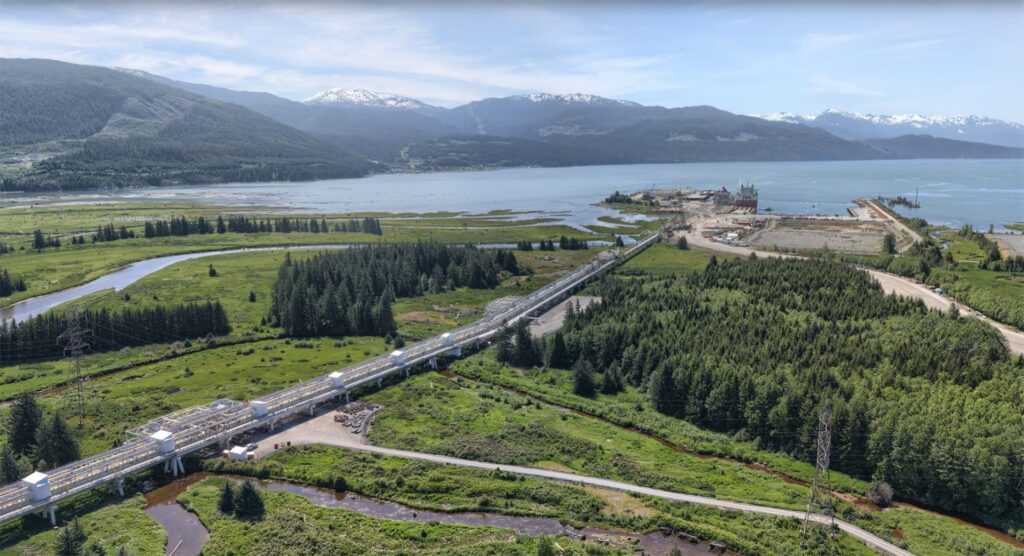
In at least one situation, the dividing line between the Bolloré Group’s emissions-heavy industrial work and its global PR business became blurred.
In 2018, French authorities detained Vincent Bolloré as part of their investigation into a decade-earlier scheme that involved bribing Togolese presidential candidates — including incumbent Faure Gnassingbé, the eventual winner — with heavily discounted Havas campaign communications services, in return for key port concessions in Lomé.
French authorities were also investigating a similar scheme involving Havas and the re-election campaign of Guinean President Alpha Condé.
In its reporting on the case, The New York Times described Vincent Bolloré as “known as the King of Africa for the vast business dealings that have won him untold riches in former French colonies,” notably rail and port monopolies in several West African nations.
In 2021, Vincent Bolloré and two other executives made plea deals with French authorities for foreign corrupt practices in the Togolese case.
Bolloré, Havas executive Jean-Philippe Dorent, and Gilles Alix, a top Bolloré executive, admitted guilt and agreed to pay fines of 375,000 euros each (around $404,000), while Bolloré Africa Logistics paid a 12 million-euro corruption ($12.9 million) settlement.
A Paris judge subsequently threw out the executives’ plea deals, however, and they are now facing criminal trials for the scheme in France’s highest court. All three have appealed the charges.
In March 2022, Bolloré Logistics was awarded a contract to support the building of the East African Crude Oil Pipeline, or EACOP. Majority-owned by French major TotalEnergies, the project aims to transport roughly 216,000 barrels of oil per day from Uganda’s Lake Albert oilfields to coastal export terminals in Tanzania.
In the wake of the corruption case, however, the Bolloré Group offloaded its African logistics division in December 2022 to shipping company MSC Group for 5.7 billion euros ($6.25 billion).
The Bolloré Group is now working on a deal to sell the rest of its logistics division to the French shipping group CMA CGM for a reported 5 billion euros (about $5.48 billion).
The Bolloré Group did not respond to a request for comment.
‘I’m Working on a Plan’
Even as the corruption charges enveloped parts of the Bolloré business empire — including a top Havas executive — Yannick Bolloré sought to cast Havas as a climate champion.
In a September 2020 post on the site then known as Twitter, Bolloré contended that he felt “even more worried by the consequences of climate change than Covid. I’m working on a plan to make sure my group will play its part in tackling this challenge.”
I feel even more worried by the consequences of climate change than Covid. I m working on a plan to make sure my group will play its part in tackling this challenge pic.twitter.com/Zva54IV6y0
— Yannick Bolloré (@YannickBollore) September 15, 2020
In 2022, Havas Group voluntarily drew up and signed a “‘climate contract’” covering all of its entities in France to “formalise its commitment to more climate-friendly advertising”. A July 2022 press release quoted Yannick Bolloré as saying, “Our communication campaigns are not limited to encouraging an act of purchase. They have a strong influence on consumers. Through their representations, they can help raise public awareness and promote more responsible behaviour.”
In May 2023, Havas publicly committed “to an ambitious decarbonisation trajectory” that ranged from obtaining “100% of its electricity from low-carbon sources by 2030,” to offering clients “more virtuous alternatives and “supporting customers in their sustainable transformation.”
Yannick Bolloré’s justifications for the Havas-Shell deal “reveal a quite worrying lack of knowledge about climate change,” Solitaire Townsend told DeSmog. “How can you expect to change Shell from within when your own comments reveal your lack of knowledge around how climate management works?”
It’s not clear that the Group’s existing fossil fuel connections influenced Yannick Bolloré’s decision to pursue Shell at Havas, to the detriment of the company’s culture and reputation. Viki Harvey of Clima, a UK sustainable operations consultancy, thinks the reason is straightforward: the profit motive. “There are so many concerned and passionate people working in advertising who don’t want agencies to continue to engage with oil and gas clients,” Harvey told DeSmog. “But it seems that the pull of massive revenues from these highly polluting clients means we probably won’t see an agency dropping them anytime soon.”
Townsend also doesn’t buy Bolloré’s reasons. “He’s twisted himself up in knots to justify to himself that he can do these two things, that he can remain a good guy who cares about climate change, who wants to have a legacy and who doesn’t want to be looked back on as being this hideously compromised figure.”
‘Misinformation Machine’
A movement has been growing to hold advertising and PR agencies accountable for helping fossil fuel clients deny, downplay, and delay action on climate change, as well as for campaigns that hype fossil fuel corporations’ investments in renewable energy — which have been a fraction of what they continue to spend on oil and gas production.
In a September 2022 address, United Nations Secretary General António Guterres said that the world needs “an intervention” for its fossil fuel addiction that will “hold fossil fuel companies and their enablers to account [including] the massive public relations machine raking in billions to shield the fossil fuel industry from scrutiny. Just as they did for the tobacco industry decades before, lobbyists and spin doctors have spewed harmful misinformation.”
This battle has largely been fought below the public radar between ex-industry change agents and their former employers. Then the news of the Havas Shell deal broke during the annual September confluence of “Climate Week NYC” and a one-day climate summit at the United Nations, while the global news media was paying special attention to climate-related stories.
“Even the fact that there has been controversy around it is a huge step forward,” said Townsend.
Duncan Meisel, executive director of Clean Creatives, believes that the deal has turned Havas into “an essential piece of Shell’s climate misinformation machine.”
“As an advertising community we need to address a new set of questions concerning the often opaque and unilateral way in which these decisions are made,” Christine Arena, a former vice president at Edelman, the world’s largest public relations firm, told DeSmog, “as well as the impact the decisions have on agency cultures, client reputations and public trust in our industry.” Arena now specialises in sustainability-related campaign strategy and design.
Jake Dubbins, co-founder of the Conscious Advertising Network (CAN), told DeSmog that the deal caught him by surprise, given Havas London’s B-Corp certification. Havas is a CAN member, and co-wrote CAN’s sustainability manifesto, a “key guide” to help advertisers place climate and sustainability at the “heart of their business”. The manifesto advises clients to look into whether prospective agencies have “clients that further the interests of fossil fuels” before choosing whom to work with.
Reputational Risk
Even if Yannick Bolloré sincerely believes Havas can change Shell from within, he’s taken on a tough case.
As far back as the mid-1970s, Shell was funding research that showed the link between burning its fossil fuel products for energy and destabilising the climate. In response, the company backed a series of influential industry-generated publications that downplayed or omitted these risks; overemphasised the uncertainties in the science, and advocated continued reliance on fossil fuels — particularly coal, the most polluting source of greenhouse emissions. Shell went on to support climate denial groups such as the Global Climate Coalition, an outspoken oil industry lobby, before the company withdrew in 1988, four years before the organisation disbanded.
In 2022, a U.S. House of Representatives investigation into climate disinformation by oil majors found that even as Shell, Exxon Mobil, and Chevron were committing to net zero goals and endorsing the 2015 Paris climate agreement in public, they were largely dismissing them internally.
Fast forward to the present: Despite the onset of the climate crisis it helped create, in June Shell announced that it was “stepping back from renewable power investments that don’t fit our strategy or do not generate enough returns”. The axe is falling on projects ranging from wind farms in Ireland and France, to the “Shell Energy” household energy subsidiary in the UK, Germany, and the Netherlands, which it had advertised as a key provider of renewable electricity.
In September, Reuters reported that several employees had written an open letter to Shell CEO Wael Sawan, protesting the renewable energy cutbacks.
Shell remains a notorious greenwasher.
In 2007, authorities in the Netherlands and the UK deemed a Shell ad campaign “misleading” for claiming it was “recycling” carbon dioxide (CO2) emissions to heat greenhouses, complete with images of flowers flowing from smokestacks. In 2008, the UK Advertising Standards Authority ordered Shell to withdraw an ad that used the word “sustainable” whilst touting the company’s Canadian oil sands operations and the expansion of a large U.S. refinery.
In 2019, the Dutch Advertising Code Commission ruled a Shell ad campaign misleading for claiming that Shell’s “alternative diesel” gas-to-liquid product contributed to a cleaner environment and improved air quality. (The ad was displayed at Shell’s 2018 Generation Discover festival — a marketing event targeting children ages eight to 14.) The regulator again ruled against Shell in 2021, for its “drive CO2 neutral” ads, and again in 2022, ruling that a revised version of the same slogan, “compensate your emissions,” was also misleading.
Shell has also been named in most of the consumer fraud cases brought by states and cities across the United States, which are seeking to hold fossil fuel companies accountable for decades of deceiving the public about the climate risks of burning oil, coal, and gas.
This week, U.S. Rep. Ted Lieu (D-CA) reiterated a call for the Department of Justice to investigate evidence that Shell, ExxonMobil, and other fossil fuel majors “lied — and continue to lie — to the public about their central role in exacerbating the climate crisis” after DeSmog and Follow The Money published new documents relating to Shell’s early knowledge of climate change.
“This new set of documents further demonstrates that Shell privately knew about the dangers its products would cause to the environment yet continued to deceive the public in pursuit of company profits. This is wrong and potentially illegal,” said Lieu, who along with U.S. Sen. Richard Blumenthal (D-CT) led 20 members of Congress in a letter last year urging the DoJ to investigate.
Shell did not respond to a request for comment.
“Unlike FTI Consulting or Edelman, [companies] that have decades-long relationships with some of the worst environmental offenders on the planet, Havas has built its reputation on the values of sustainability and transparency,” said Christine Arena. So Yannick Bolloré “breached a moral clause in his contract with agency employees and clients” when he pursued Shell’s global advertising account.
That makes it “entirely reasonable for some clients to recalibrate their contracts with Havas,” in her view as a PR veteran, “and for the hundreds of thousands of agency employees who feel blindsided, pressured or [too] intimidated to organise. I encourage them to do so now.”
Additional reporting by TJ Jordan, Ellen Ormesher, and Cartie Werthman.
Subscribe to our newsletter
Stay up to date with DeSmog news and alerts


